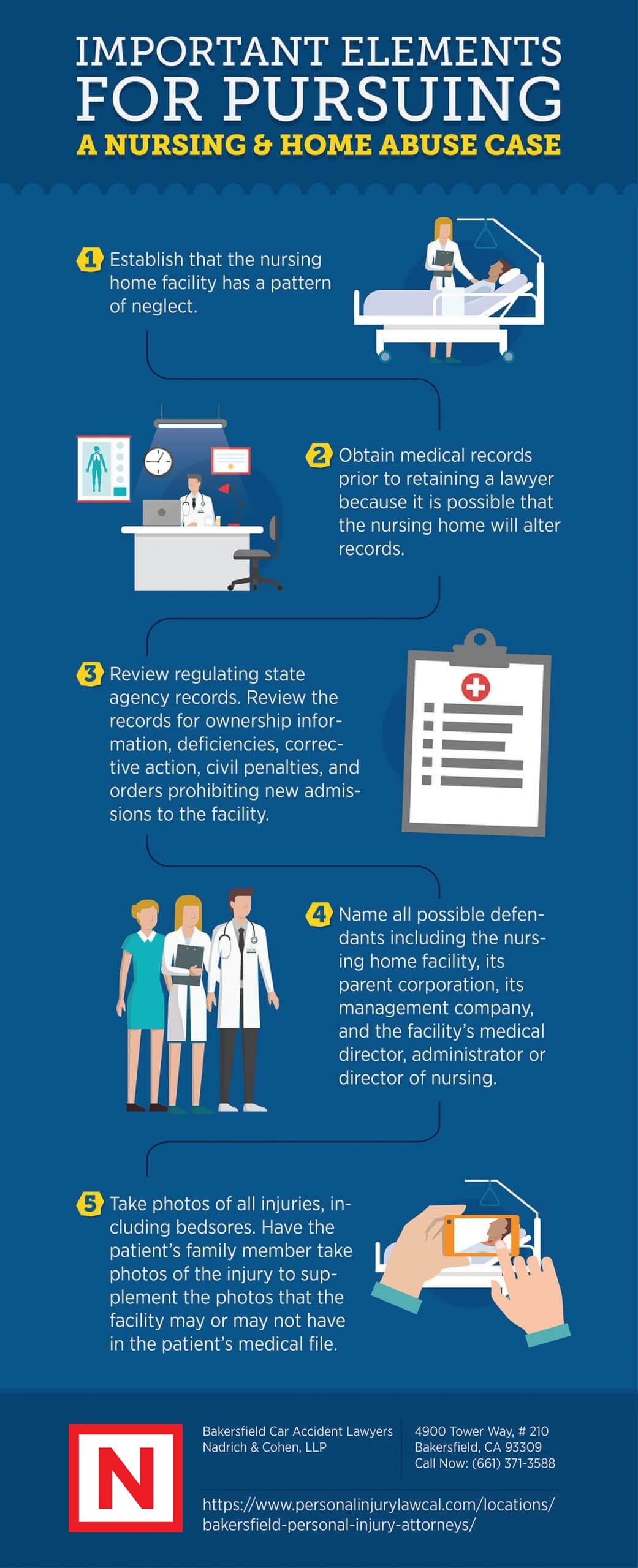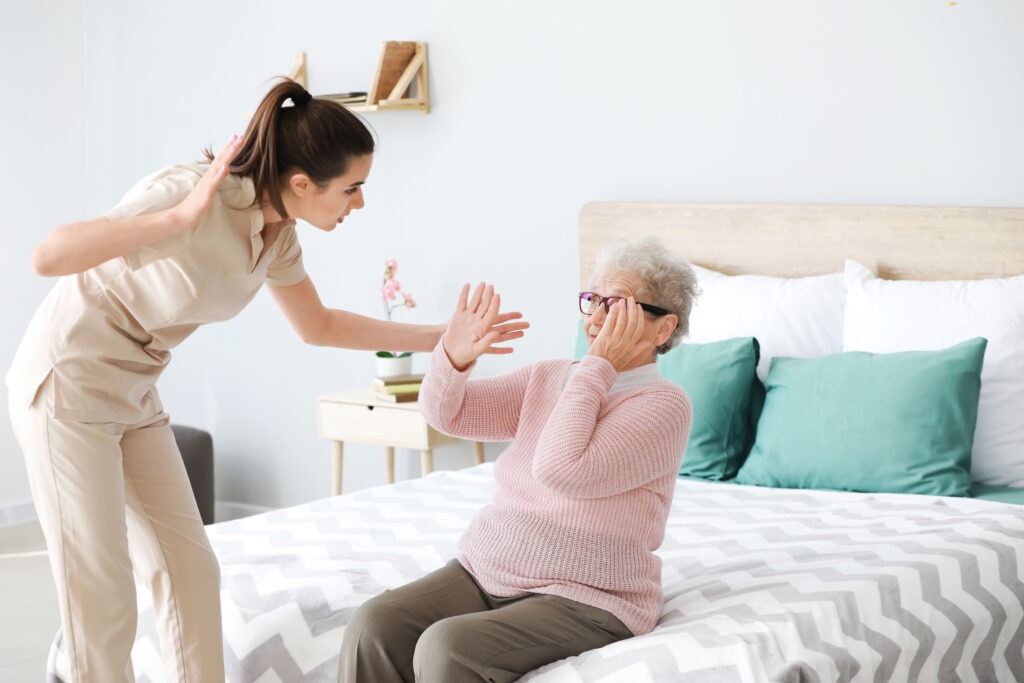
According to the National Council on Aging, approximately one in 10 senior citizens have experienced elderly abuse of some type. This is concerning, particularly because another study estimates only one in 24 elderly abuse cases are reported to authorities.
Nursing home abuse can take many forms including physical, emotional, financial, and sexual abuse. The last thing you want is for your parents or grandparents to experience suffering by those who should be caring for them.
To help you keep your elder relatives safe, we’ve put together a guide on types of elderly abuse and signs to spot abuse below.
Types of Nursing Home Abuse
Physical abuse may be the most obvious of nursing home abuse because it usually results in bruising, fractured bones, or even death. But elder abuse comes in many forms, including:
- Physical abuse
- Sexual abuse
- Emotional abuse
- Financial Abuse
- Confinement
- Neglect
While staff might not physically harm your loved one, it doesn’t mean they aren’t responsible for abuse. They might be abusing elders emotionally, by yelling or shouting, or abusing them through confinement, keeping them unnecessarily isolated from others.
One of the most common types of elderly abuse is neglect, whereby nursing homes simply fail to provide the basic necessities such as food, shelter or medical care.
Spotting Nursing Home Abuse
If you’re on the lookout for nursing home abuse, you can intervene and protect your loved ones. You just need to know what signs to look for.
Physical Abuse Warning Signs
Signs of physical elderly abuse includes:
- Dehydration
- Weight loss due to bad nutrition
- Missing living aids such as glasses or walking aids
- Unexplained bruises, cuts, fractures or burns
- Poor hygiene or an unsanitary living space
- Pressure wounds or bed sores
Emotional Abuse Warning Signs
Signs of emotional elderly abuse includes:
- Increased nervousness or anxiety
- Unusual sleep patterns
- Eye contact avoidance
- Engaging in self-harm
- Isolation from others
Financial Abuse Warning Signs
Signs of financial elderly abuse includes:
- Missing belongings such as credit cards or jewelry
- Unrecognized signatures on checks
- Unusual spending habits
- Unpaid bills
- Abrupt change to their will
- Diversion of bank statements
The best defense against nursing home abuse is regular visits to a loved one who is a resident. Abusers are less likely to abuse a resident who receives regular visits.
Pursuing a Nursing Home Abuse Case
If you suspect your loved one is being abused, it could be time to pursue legal action. It might be difficult to prove, but with some determination and organization, you can receive justice for your loved one.
To pursue a case, follow the steps below:
Step 1: Establish a Pattern of Abuse or Neglect

First, be on the lookout for signs of neglect such as dehydration, malnutrition, bruises or any of the other symptoms outlined above. Document any signs that you see and talk with your elder to see if they’ll give you details about what they’ve experienced.
Step 2: Obtain Medical Records
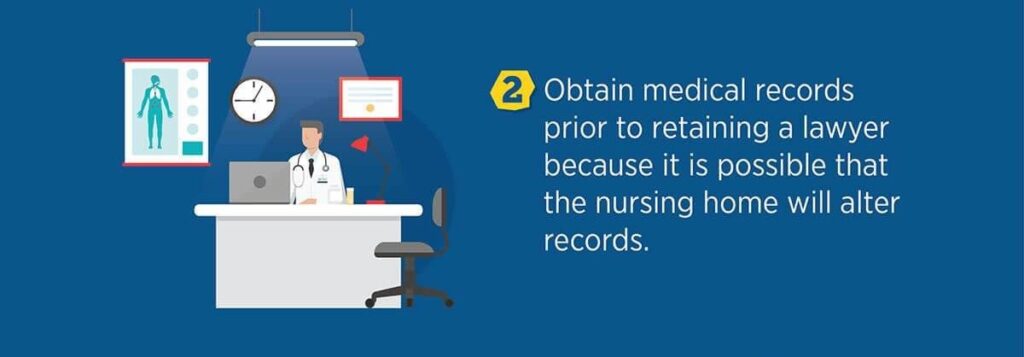
As soon as you can, compile important medical records for your elder. Ideally, you’d do this before taking a nursing home to court, since it’s possible they could alter records.
Step 3: Review State Agency Records
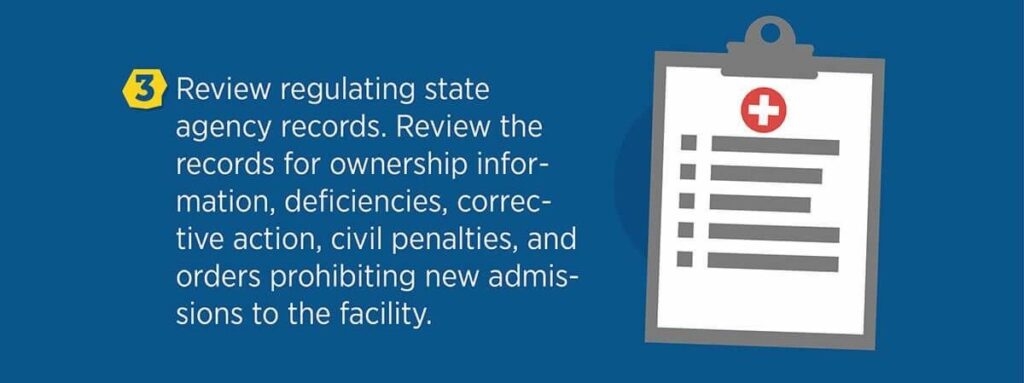
Review state agency records for ownership information, deficiencies, civil penalties and more.
Step 4: Name All Applicable Defendants
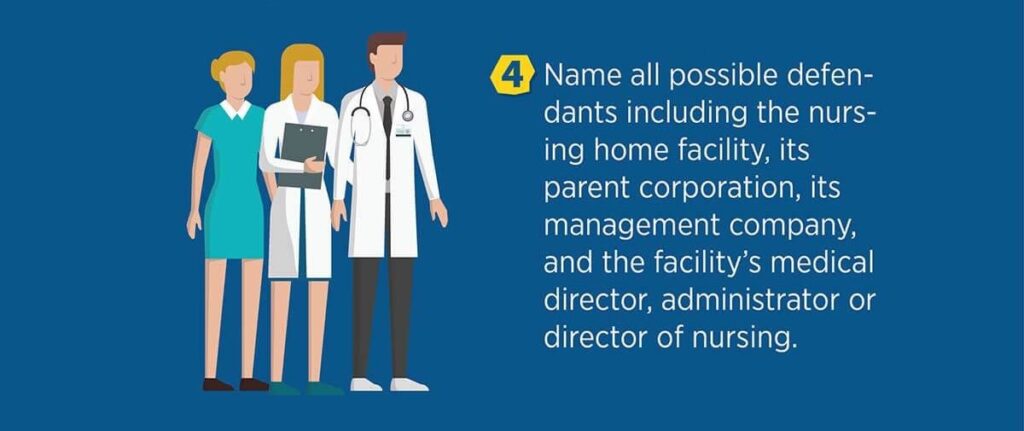
Don’t just name the nursing home itself as a defendant in your nursing home abuse case. You should also name its parent corporation, management company, the facilities medical director and other relevant parties.
Step 5: Document Everything

While we discussed this already in step one, it’s worth emphasizing again: Document everything. Take photos of anything you notice that could be a sign of elder abuse. By the time the trial rolls around, this evidence will be crucial.
Conclusion
If you suspect nursing home abuse, it’s important to report it to the relevant authorities and consult with a lawyer. We’ll help you organize evidence, navigate the legal process and bring any abusers to justice.
Contact us today for a free consultation or give us a call at (800) 718-4658.
Check out our full infographic about the elements of a nursing home abuse case below.

